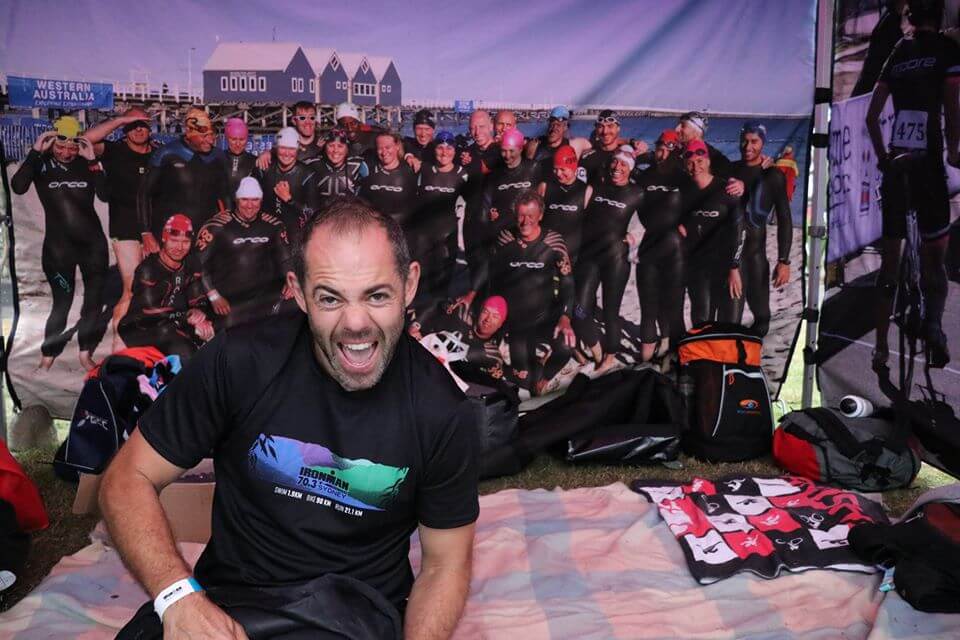Every year I see a drop off in training over winter and of course that’s natural, but how long a break is long enough?
And do you need a complete rest or just reduce volume and intensity?
There is no one correct answer. It’s very much an individual thing based on what you’ve been doing, your athletic age, if you have any injuries or niggles and your goals for the next season.

The duration of an end of season break will vary for every person. In most cases athletes will benefit from having a one to four week break as this allows the body time to heal and freshen up
Even though you may need a break to give your body time to recover the biggest mistake so many people make is to take way too much time off.
Plan your comeback
I strongly suggest that you assess how long a break you need and schedule a date to resume training. This doesn’t have to be set in stone but failing to plan a comeback date can lead to time passing by and before you know it you are chasing your tail.
Injury
Have you had a niggling injury that has been hindering you through the season? The end of season break is a great time to get on top of it and ensure that you aren’t risking long-term damage.
I suggest getting any niggles looked at by a qualified manual therapist to ensure that you take the fastest route to full functioning health and find the root cause of the injury. For those in the East I recommend Balance in Motion in Bondi or Paula Luke at Joint Health in the City.
Cross Training
An ideal time to get some cross training in. is during this off-season, such as working with Naomi Prendagast TBC at Roman Pilates in Randwick to increase mobility, flexibility, strength and conditioning. A few of my athletes work with Naomi and are getting great results that help them with their sport. Don’t underestimate how changing things up over winter can accelerate your ability in your primary sport.
Ease back into it
Next you need to set a plan, this is where a coach can be really beneficial. I often see people coming out of their break and trying to start where they left off. This can lead to all sorts of problems down the line. I like to have a “transition” block of training which helps you ease into it while preparing your body for what is about to come ahead to avoid injury. You might not have your heart rate pumping out of your chest, but the first three weeks could be some of the most important training sessions of the year.
The off-season is so important. While you don’t have to churn out the hours that you were during your peak phase for that goal race, “winter” or the “off season” is so important to focus on your weaknesses and lays the foundations for your best ever season. The work that you do during this time doesn’t mean that you have to hit PB’s in every session but maintaining some consistency will be the difference between a good and great year.

Many people take too long off and while at first you get that feeling of being “fresh”, but being inactive you typically lose this feeling after 14 days. At this point you are losing fitness at a fast rate and you aren’t getting the health benefits for general exercise and possibly creating bad habits that will make the comeback harder by the day.
I think the key is to plan a “transition” phase for a couple of weeks and then assess if you need another week in this block before getting into the next block. At this stage it’s not critical to be training every day but it is important to find the right amount of training for you and by getting back into a routine without too much training stress you will remember why you love your sport so much.
After your end of season break
- It’s a great time to sit down with your coach (me) and review the previous year, what went well, and what didn’t It’s so important not to get dragged into a continuous cycle and do the same thing year on year.

Taking a step back and looking at the bigger picture could be the biggest gain you could make.
Did you have any specific areas that really held you back? This can be something really simple like your nutrition, sleep patterns, hydration, work/life balance or it could be something more specific to your training?
Is there an aspect you avoid because you find it more challenging and you always opt for the easy option?
Take a little time out at the end of the season and take an honest look at where you are and what you need to do to reach your goals.
Sometimes the best thing for your training can be do do nothing?
See story below for tips on how you can incorporate rest and restorative activities for your mind and body.




